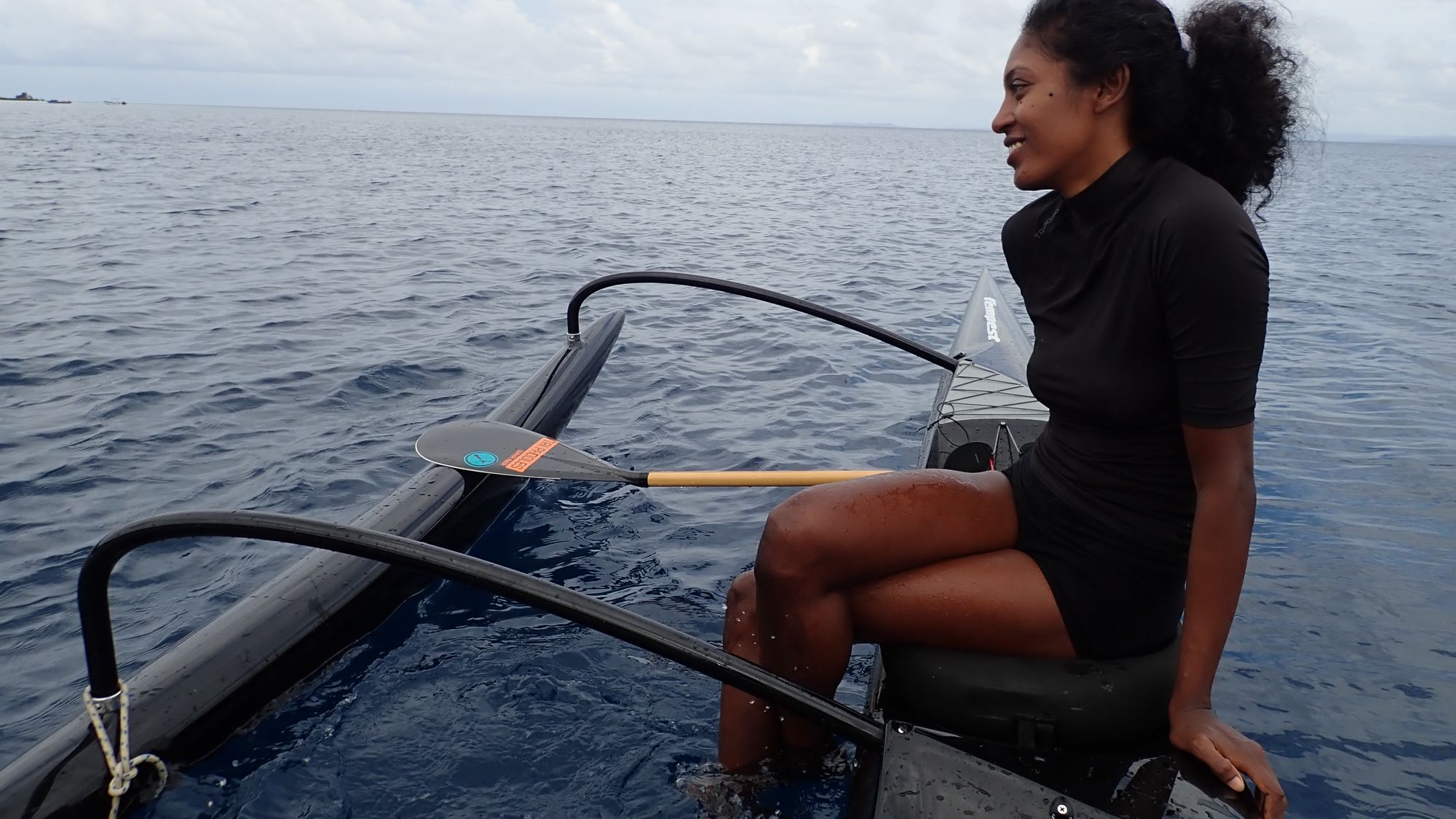Growing up in Fiji, a nation spanning hundreds of Pacific islands, means growing up with the call of the ocean in your blood — even when you’re far from the sea. Free diver Neelam Ratan spent her childhood on a sugarcane farm, swimming in rivers, but her first experience of snorkelling was transformative. “I was 14 years old and I went with a couple of my friends,” she recalls. “It was so beautiful. It was perfect. It was like coming home.” Surfers know Fiji for world-class waves such as Cloudbreak, but there’s magic below the surface, too – from watching cleaner fish grooming giant manta rays to the thrill of scuba diving with bull sharks.
Marine conservationist Jone Waitati spent seven years teaching diving in the cold, dark lakes, rivers and quarries around Frankfurt, Germany. When he returned home and dove into the ocean, he wept. “It was so beautiful, such vibrant colours, I was crying underwater,” he says. “All these creatures like dolphins, manta rays, whales — you can’t see these things on land.”
Ratan, whose ancestors arrived in Fiji from India five generations ago, spent six years travelling the Pacific on a sailboat, scuba diving and modelling for her husband, an underwater photographer. Gradually, she realised that the noise of the bubbles from her tank disturbed marine life. “The animals actually came closer to me and reacted better to my presence underwater if I didn’t have a tank, if I didn’t make any noise,” she says.
Today, Ratan free dives — descending up to 60m (197 feet) below the surface, depths that usually only technical divers can reach using tanks. Ratan and her husband run Liquidstate Freediving in Savusavu, Vanua Levu to bring the joy and serenity they find in the ocean to a broader audience.
Ratan’s students include yogis wanting to expand their breathwork and meditation, surfers who hope to survive long hold-downs in Fiji’s epic swells, and many who’d just like to see more of the ocean. Freediving demands an intense state of relaxation, which enables practitioners to overcome, or rather defer, the symptoms of air hunger.
Ratan can hold her breath for about six minutes. “When you have the urge to breathe, you have mental symptoms first, then physical, then contractions,” she explains. “If you’re able to relax [your] mind and body, you can push the urge to breathe further and further away.”
Freediving lets her observe reef ecosystems up close. “You hear the fish making noises and interacting: One fish will click out a warning and the other fish [will] hide,” she says. “You can see and hear them nibbling on coral. You really hear what’s going on.”
Freediving also enables rare and magical encounters with larger, oceanic marine life. Last year, Ratan and her husband were spearfishing when a giant hammerhead shark emerged from the blue; on another occasion, she came across a mother humpback whale tending to her calf. Yet key to her experience of freediving is the happiness the ocean can bring. “I had one student who contacted me and was very anxious about freediving, so I suggested we do a small one-day session to see how it goes,” Ratan recalls. “She did really well, and when she went back to her accommodation she cried. She was a breast cancer survivor who came to find herself and she thought she could never do something like that.”



